Master of Science in Nursing – Public Health
Prepare to meet the health needs of diverse populations.
Make a difference in communities by effecting positive change in the field of healthcare with an MSN with a specialization in Public Health. In this program, you will get a thorough overview of epidemiology and the role of public health in community wellness. An in-depth course in school nursing will expose you to the pivotal public health role of the school nurse, educator, advocate, and public health evaluator. Before the practicum, you will examine outpatient care with a course on case management and home health—including hospice and palliative care—to learn how the entire community collaborates for patient care. Graduates of this program can work in public health, community health, home health, hospice and palliative care, school nursing, or case management. The MSN Public Health program equips students with knowledge and skills to solve public health and community health problems; foundations of public health theory, health care policy, and politics; insight and awareness to define, assess, and drive change; and a heightened understanding of public policies, theories, principles and their application to real-life cases.
Public Health Nurse vs. Community Health Nurse
What Can You Do With an MSN in Public Health?
Public Health Nursing Shortage
Aspen MSN Public Health graduates can:
- Meet the health needs of diverse populations
- Develop, plan, and implement primary prevention, illness prevention, and health promotion
- Conduct community assessment, program planning, and policy development
- Promote and preserve the health of families, aggregates, communities, and populations
- Assume roles in-home care, schools, occupational health settings, community and global agencies
- Cause a reduction in disease and illness through research, education and other viable solutions
The Master of Science in Nursing program at Aspen University is accredited by the Commission on Collegiate Nursing Education.
Enjoy Flexibility– 12 online courses with program start dates every 2 weeks
Choose Where You Learn– Online courses with a local practicum
Affordable Monthly Payments
Focus on Your Passion– Choose your practicum project
Practicum courses are performed within a clinical practice or academic setting allowing students to apply concepts under the direct supervision of a Preceptor. Aspen’s Office of Field Experience offers additional support for MSN students during the practicum process.
Aspen also offers online RN to MSN programs for nurses without a BSN degree.
Why More Nurses Are Choosing Aspen


MSN Public Health Courses
Aspen’s MSN curriculum features 12 courses designed to equip you with advanced nursing skills. Taught by experienced nurse educators from diverse healthcare settings, you’ll have the opportunity to apply new knowledge directly to your practice through the integration of your MSN practicum project.
View the course plan for this program here: MSN Public Health Degree Plan
-
N502 - Health Care Systems
-
N680 - Overview of Public Health Nursing
- **(Optional Textbook, Not Required)** Population and Community Health Nursing (6th Edition) - 978-0133859591
- Publication Manual of the American Psychological Association (7th Edition) - 9781433832154
- Population-Based Nursing: Concepts and Competencies for Advanced Practice (2nd Edition) - 9780826196132
- Epidemiology for Public Health Practice (6th Edition) - 9781284175431
-
N512 - Diverse Populations & Health Care
-
N520 - Legal and Ethical Issues in Health Care
-
N518 - Advanced Physical Assessment
-
N510 - Advanced Pathophysiology
-
N511 - Advanced Pharmacology
-
N682 - School Nursing
-
N684 - Case Management and Home Health Services
-
N508 - Theory and Research
-
N586PH - Public Health Nursing Practicum
-
N599 - Nursing Capstone
This graduate-level course introduces students to the historical development, structure, operation, and current and future directions of the major components of the American health care delivery system. It reviews the historical evolution of the health care system's features and examines the ways in which health care services are organized and delivered, the influences that affect health care public policy decisions, factors that determine priorities for the allocation of health care resources, and the relationship of health care costs to measurable benefits. The course enables students to assess the role of organized efforts to influence health policy formulation, and the contributions of medical technology, research findings, and societal values on our evolving health care delivery system.
3 CreditsRequired Books
Public health nurses are part of an exciting future with the potential of solving many of the health and psychosocial ailments currently affecting the population. The underlying assumption of this course is that public health nurses, who comprise a major part of the public health workforce, must take a leadership role in improving the health of our nations’ residences. Information on the use of population data and how it is used to assess, plan, monitor and evaluate is included. This course includes content on the diverse knowledge of complex health systems public health nurses must have to be able to function independently. The public health nurse must have knowledge of the impact of environment or a disaster on health. Content on the influence of policies, regulations and governmental programs is interwoven throughout the course. Emphasis is placed on the multitude of other disciplines and how the nurse must collaborate at every level to promote population health. The role of the public health in serving patients in a variety of settings is examined. A focus on how nursing serves the vulnerable or selected specific populations is also included.
3 CreditsRequired Books
This graduate-level course provides an in-depth study of cultural diversity, delineating ethnocultural congruent health-care practices in a pluralistic society. Assessment, planning, and interventions for health promotion and maintenance, illness and disease prevention, health restoration, and health policy are explored. The course examines the meanings of health and illness across ethnocultural groups and communities.
3 CreditsRequired Books
This graduate-level course focuses on the legal and ethical rights, responsibilities, and obligations of the practicing nurse in a changing health environment. It is intended to provide graduate nursing students with the theory, knowledge and application necessary to deal with pressing legal and ethical issues in nursing practice. Learners will develop a framework for working through increasingly complex legal and ethical issues that affect nurses. This framework and broadened perspective will help practitioners recognize and respond to dilemmas within diverse health care settings and nursing roles. This course will provide an overview of regulatory action and the legislative and judicial processes, enabling learners to become familiar with changes affecting the health care system such as patient rights, technological advances, and managed care. Within an ethical framework, ethical and professional issues affecting the individual, the practice of professional nursing, and the profession will be explored.
3 CreditsRequired Books
This graduate level course focuses on advanced health/physical assessment and includes the comprehensive history, physical, and psychological assessment of signs and symptoms, pathophysiologic changes, and psychosocial variations of the patient (individual, family, or community). This course will prepare students by providing an in-depth knowledge of core general assessment content, in addition to geriatric, pediatric, genetic, social, cultural, and community-specific needs. Appropriate screening and diagnostic testing methods will also be included. Content knowledge will be reinforced through a series of virtual reality patient encounter simulations. This will culminate with a precepted virtual reality comprehensive physical assessment.
3 CreditsRequired Books
This graduate-level course focuses on developing advanced knowledge of human pathophysiological functions and responses to altered conditions, and includes integration of this knowledge into evidenced-based nursing practice. The focus is on frequently encountered primary care conditions across the general lifespan and for special populations. This course will prepare students to function in advanced practice and nurse educator roles by providing an in-depth understanding of pathophysiologic processes, enabling the student to predict clinical manifestations, select evaluative studies, initiate appropriate therapies, and anticipate potential complications. Insights into the underlying disease process will prepare the practitioner and educator for integration of new and innovative interventions, pharmacotherapeutics, analysis of risk factors, and associated signs and symptoms. Appropriate screening and diagnostic testing methods will also be included. Emphasis will be placed on important pathophysiological concepts needed to support the goals of Healthy People 2020 to improve clients’ quality of life and reduce health disparities. Additionally, this course will address the pathophysiologic needs of communities and individuals in emergency and disaster settings.
3 CreditsRequired Books
This graduate level course focuses on developing advanced knowledge of pharmacology and pharmacologic responses. A deeper look will be taken at cultural, social, genetic, and other issues that impact patient decisions regarding pharmacologic treatment. Students will be prepared to address common herbal and alternative therapies utilized by patients. Also included in the course is a discussion of the role of the nurse in the process of approvals for new pharmacologic treatments and in the coordination of medication distribution. Application will be made to disaster and emergency management and the role of the nurse in the multidisciplinary team under these circumstances.
3 CreditsRequired Books
This course addresses the role of the school nurse in the school and the community, including public health, other health providers, and the family. The profession of nursing, development of preschool-adolescent students, evidence-based care, care of children with common conditions, intellectual disabilities, and high-risk behavior will be examined, with respect to cultural and legal considerations. The role of the school nurse with regards to disaster planning will also be discussed.
3 CreditsRequired Books
This course provides a solid foundation in case management strategies and home health nursing concepts and interventions for individuals and targeted populations. The leadership roles of the nurse in case management and home health are explored. The impact of political, economic, social, environmental, and cultural concerns on the health of populations is examined. Standards and principles of practice for both of these specialty areas is explored. Innovation in care delivery is discussed.
3 CreditsRequired Books
This graduate-level course in theory and research for advanced nursing practice is designed to develop and refine the knowledge and skills necessary to critique theory and research from nursing and related fields. The focus of this course is on the examination of the research process with applicability to advanced nursing practice. Emphasis is placed on the critique, evaluation, and utilization of nursing and related research that applies to advanced nursing practice and a comprehensive approach to care. Ethical and technological aspects of scholarly inquiry are explored. This course supports the development of the research design, theoretical framework, methods of analysis, and creating an abstract for the capstone project proposal.
3 CreditsRequired Books
This graduate-level course focuses on the Public Health specialist role through the application of theoretical concepts and strategies for a selected audience and the implementation of a quality improvement project in a health-related setting. Emphasis is on effective communication and sensitivity to varying needs of the audience. The Public Health specialist role will be analyzed and applied in collaboration with a master’s prepared nurse preceptor with experience in this specialty. Evidence-based strategies will be developed into a comprehensive project to engage learners in active learning and implemented to meet mutually determined outcomes. The student will complete an annotated bibliography and the project activities might include, but are not limited to: creating toolkit of resource references, developing a presentation, creating a survey to measure satisfaction with activity, attending professional meetings, writing a publishable article, presenting a topic to patients, creating a webinar, delivery of training modules, developing software to meet a need, developing an advocacy agenda or tool, or proposing a change in practice, process or procedure. This course requires a total of a minimum 120 hours of Public Health practicum experience within a practice environment, must include inter-professional collaboration and a minimum of 20 hours (included in the 120 hours) of direct-care experience. Finally, the student will complete the MSN program’s Comprehensive Examination during module seven of this course.
3 CreditsRequired Books
The purpose of this individualized learning experience is to enable you to develop an original comprehensive nursing research project on a topic of professional or personal interest. This project-based course is intended to enable you to research, design and develop a substantial original applied project of your own authorship. This project is intended to encourage the application of theories, principles, and processes that you have studied in the Aspen graduate courses to an actual nursing related problem or issue of interest and relevance to you in your professional activities. PLEASE NOTE: Students cannot start the Capstone concurrently with the Practicum, as the Capstone is based upon the data collected from the Practicum.
3 CreditsRequired Books
For more information about the program, see the Academic Catalog.
“Aspen University has been invaluable in reaching my goals. Their online program made it possible for me to balance my career, my family obligations, and my role in church. From the beginning, I felt as if they wanted me to be successful. Their program encouraged me to push through the obstacles. The institution has equipped me with advanced knowledge and skills to make a valid contribution to modern-day health care. Aspen’s program was challenging and introduced me to facets of the healthcare industry I had not known.”
Christine S.,
MSN Public Health, graduated October 2023Cost & Time to Completion
The Best Fit for Working Nurses
We understand the difficulties in pursuing your MSN when you have a demanding work schedule. The 8-week courses at Aspen University allow you to complete your program in as little as 24 months.
Our Monthly Payment Plan Makes Us Different.
Paying for your MSN shouldn’t be complicated. Our Monthly Payment Plan makes it easy for working nurses to finance their MSN program.
Pay $415 per Month
The monthly payment plan is a private education loan with a 0% fixed rate of interest (0% APR) and no down payment. Each month you’ll make one payment of $415 for 43 months.
Tuition Rates
| $15,480 | Tuition |
| $2,225 | Fees |
| $1,800 |
Estimated
Textbook
Costs
|
| $19,505 | |
Ways to Finance Your MSN

Students who have served, or are currently serving in the United States Military and their legal spouses are eligible to receive a Military Affiliation Discount from Aspen University.

Aspen University is currently approved by the U.S. Department of Education to offer federal student aid for the MSN program.

Aspen University maintains employee tuition discount partnerships with a large and growing number of organizations. Tell your enrollment advisor where you work and ask them to check for you prior to enrolling.

Aspen offers several payment plans for students to fund their education.
Earn Your MSN with Confidence

The baccalaureate degree program in nursing, the master’s degree program in nursing, and the Doctor of Nursing Practice program at Aspen University are accredited by the Commission on Collegiate Nursing Education.
Rose T.,
MSN Public Health, graduated August 2020Admission Requirements

Application – A completed application; Aspen does not charge an application fee

Registered Nurse Licensure – Current, unrestricted licensure as a registered nurse in the United States, a US territory, or Canada. Registered nurses licensed outside of these areas are not eligible.

Bachelor of Science in Nursing –Official Transcript demonstrating a bachelor’s degree in nursing from an institution that is accredited by a CHEA recognized accrediting body or an international equivalent; applicants must have earned at least a 2.5 GPA in their BSN program (see Catalog for more information)

Nursing Experience – A minimum of one year of nursing experience completed within the past five years.

Government-Issued Photo Identification – Identification must be valid, current, and legible.
Career Outlook
Nursing is a unique career field that provides opportunities in a variety of settings and patient populations. The U.S. Bureau of Labor Statistics identifies that the job outlook from 2022-2033 is 6% faster than average with an anticipated 194,500 nursing jobs projected annually.
The American Association of Colleges in Nursing (AACN) reported that 82% of new MSN graduates had a job offer at the time of graduation and 95% of MSN graduates had a job offer within 6 months of graduation.
Public health nurses are prepared to meet the unique healthcare needs of diverse population in a variety of settings including public health, home health, palliative care, school nursing, and case management.
Average Annual Salary for MSN-prepared Nurses
$120,870
Data pulled from NursingProcess.org in Fall 2024. Salary can vary widely depending on geographical location and role.
MSN Frequently Asked Questions
-
What is the MSN degree?
-
What are the differences between the RN to MSN program and the MSN program?
-
Is Aspen’s MSN program accredited?
-
Can I finish my MSN degree online?
-
What specialties are offered in the MSN degree program?
-
Can multiple specialties within the MSN program be completed simultaneously?
-
Does Aspen help with locating a preceptor and site to complete hours?
The Master of Science in Nursing degree is a graduate degree that prepares nurses for specialties in their selected area of healthcare.
The RN-MSN program is available for RNs who do not hold a bachelor of science degree in nursing (BSN). The MSN direct-entry program is available for RNs who have obtained their BSN degree.
Yes, the MSN program is accredited by the Commission on Collegiate Nursing Education.
Yes, Aspen’s MSN degree programs are completed online. There is a 120-hour practicum course associated with each specialty that requires a preceptor supervisor.
Aspen offers MSN degrees specializing in Administration and Management, Forensic Nursing, Informatics, Nursing Education, and Public Health.
No, students can only complete one specialization.
Many students utilize their workplace to identify their preceptor and site location. Aspen’s Office of Field Experience (OFE) is also available to support students with obtaining approval from their preceptor, site, and collaborating to identify alternative locations as needed.


